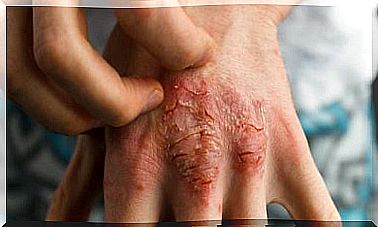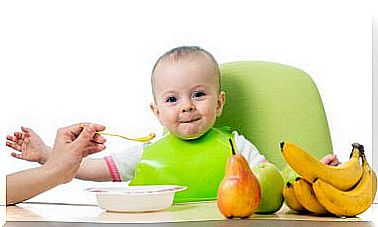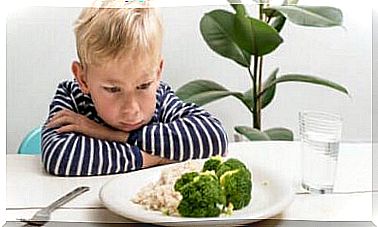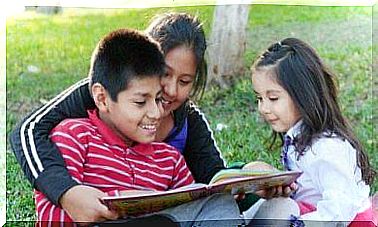My Teen Is Vegan: What Should I Do?

Did you know that young adults are increasingly turning vegan? According to the Vegetarian Resource Group, about 0.5% of American youth are vegan. However, if your teen is vegan, it can be difficult to know how to support him or her.
Veganism is a lifestyle based on rejecting any product of animal origin, including clothing and shoes, as well as all products tested on animals. Specifically, a vegan diet mainly includes food from plants. As a result, you may have doubts.
But do not worry! In 2016, the American Nutrition Association (ANA) voted in favor of a lifelong vegetarian diet. Their conclusion was the following:
The Dutch National Institute for Public Health and the Environment (RIVM) agrees with ANA.
My Teen Is Vegan: What Should I Do?
First, you need to listen to your child and be understanding. Second, the main reasons your children have decided to become vegetarian or vegan are based on exploitation and animal cruelty, as well as the environmental impact generated by the production and consumption of food.
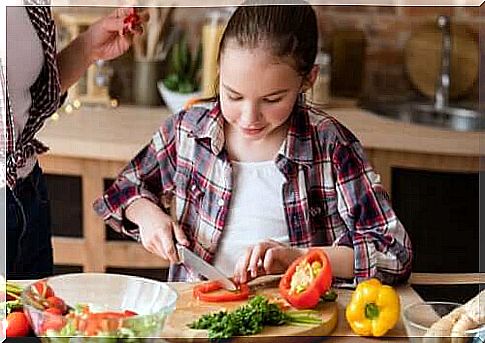
How can you help your vegan teen plan a balanced diet?
One of the ways your child can include protein in their daily diet is to include legumes at both lunch and dinner. They also don’t need to eat them whole, as derivatives are available in stores, such as tofu, tempeh, textured soybeans, and seitan. These are good options for snacks or meals. The recommended amounts of each food are:
- 200-250 g cooked legumes (half plate or whole plate)
- 125 g tofu or tempeh (about the size of your palm)
- 80-100 g hydrated textured soybeans (about half a glass)
In addition, they should eat fruits and vegetables daily with all meals. Experts recommend a minimum of 400 g.
As for grains, these supplement legumes because they both lack an amino acid. However, it is not necessary to include them in the same meal. You should know that while eating they are stored until the limit is reached.
Try as much as possible to ensure that all grains are whole grains. Plus, there are many other options instead of just rice, pasta, bread, and potatoes, such as quinoa, millet, bulgur, sweet potato, and oats.
Finally, you need healthy fats for cooking so you can supplement and complete meals with extra virgin olive oil, avocado, olives, nuts and seeds.
Dairy substitutes
As an alternative to dairy products, there are now many plant-based drinks and yogurts made with soy, grains (rice and oats), seeds, and nuts. Of the many options, soy is the one that most closely resembles milk in terms of nutrients.
When choosing an option, make sure there are no added sugars in the list of ingredients. It’s also better if your alternative is fortified with calcium and vitamin D. Any other consideration will depend on your child’s taste, as each one has a different taste.
Vegan Alternatives: Are They Healthy?
In general, the answer is no, as they often use low-quality ingredients such as sunflower oil or potato starch and flour. This is the case with vegan meat or sausage.
However, some companies have started up and are creating better products. On the other hand, despite the fact that there are sweets and pastries made with plant-based ingredients, you should still eat them in moderation.
Possible Concerns If Your Teen Is Vegan
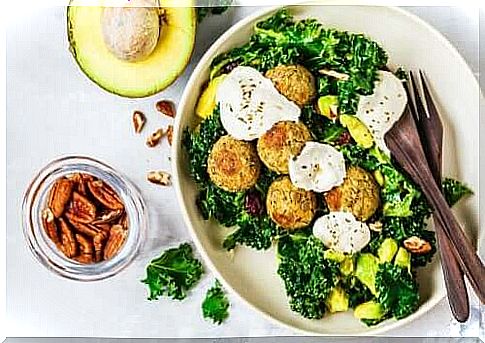
B12 And Everything You Need To Know About This Supplement For Your Vegan Teen
First, vitamin B12 is water-soluble and is only found in foods of animal origin, despite the fact that it is obtained through bacterial synthesis.
- Its function is to facilitate the work of red blood cells, and therefore a deficiency of B12 causes megaloblastic anemia.
- It is also involved in the formation of myelin, which facilitates the transmission of the nerve impulse.
- B12 is also responsible for the metabolism of homocysteine because it acts as an enzymatic cofactor.
In fact, a deficiency in this vitamin causes neurological damage, such as memory loss, lack of coordination and paresthesia. As a result, people following a vegan diet should supplement 2,000 micrograms of cyanocobalamin per week. You can buy this at health food stores or online.
In addition, it is also important to check the levels at least once a year through a blood test. However, B12 levels in these tests are not always reliable, as analogs are indistinguishable from active forms. They have a similar structure, but no functionality.
Some of this vitamin is also found in plants, such as mushrooms and spirulina algae, which can interfere with test results if you eat them. The storage of the carrier protein also cannot be indicated.
So what parameters should you look at? It is best to look at homocysteine and methylmalonic acid as they build up in the body when there is a B12 deficiency.
If my teen is vegan and does not eat dairy products, where can he get calcium?
This is the main concern when following a vegan diet, as many people believe that dairy is the only source of calcium. However, many plant foods have similar or higher levels of calcium.
You can find calcium in cruciferous vegetables, such as cabbage, cauliflower, broccoli and Brussels sprouts. You can also find it in white beans, almonds, sesame seeds and tofu made with calcium salts. As we mentioned earlier, there are even plant-based drinks fortified with this mineral.
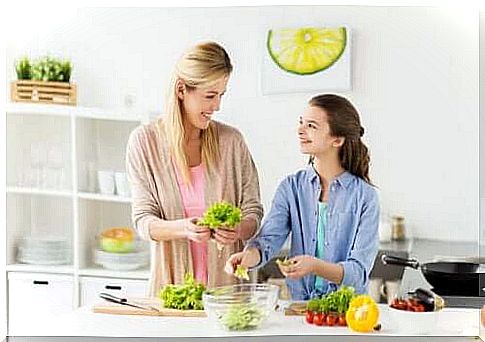
Another aspect to keep in mind is that the content of phytates and oxalates reduces the absorption of calcium, so it is necessary to lower it. How? By using culinary techniques, such as soaking, roasting, sprouting, fermenting or slow cooking.
How can I prevent iron deficiency and anemia if my teen is vegan?
Another common concern is the risk of anemia, as plant-based iron is less well absorbed than meat. However, anemia is just as common in people on an omnivorous diet. The reason is that the body itself improves the absorption of iron by decreasing iron absorption.
In addition, to promote the absorption of iron from food, you can combine food sources with vitamin C, which is found in citrus, pepper and parsley.
A Teen Who’s Vegan Can Be Healthy
As you have seen, a vegan child can be healthy as long as you have the right information. It is normal to have doubts at first or try to get your child to change their mind. That’s why we recommend that you take your teen to a dietician or nutritionist. You can then solve any problems together and she can help you plan meals.
That way you can make sure he gets all the nutrients he needs to get healthy and prevent disease.


